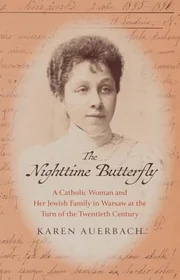
The history of modern Jewish life has been told on the great stages of war and terror, on the streets of villages and ghettos, and on the ships and trains that took the Jewish people to their doom or their deliverance. This exquisite book tells that history on a smaller, but no less dramatic, scale through the diary of a young Polish woman. It reveals how the upper-class Jews of late-19th- and early-20th-century Poland were often torn between identifying with their past and needing to change for the present. That tear ran along the seam of Jewish birth and Catholic conversion. Needing to convert had long been a condition for Jewish social and economic advancement. What we see in this book, however, is a subtle interplay between social pressure and personal growth. The author has discovered a remarkable document of self-understanding. The young Alicja Lewental loves her father and his faith, yet she voices a contempt for the traditional Jews around her. She grows up, she hopes to marry, but in what faith? All young people struggle with a sense of belonging. What makes Alicja so remarkable is how, in her diary, she phrases that struggle—with brilliant literary flair—as part of a larger fight for, and within, Jewish life itself. “It seemed to me that some kind of thread of the past is rupturing and that this bright, radiant past has disappeared forever.” Refusing to marry into Judaism, shunned by Catholics, Alicja writes like some great, undiscovered Kafka: “I will remain alone, completely alone among the entire human mass.”


